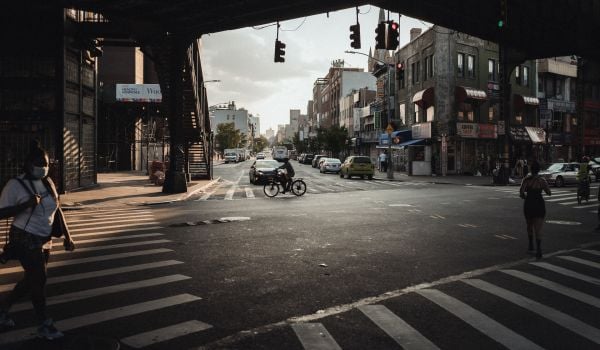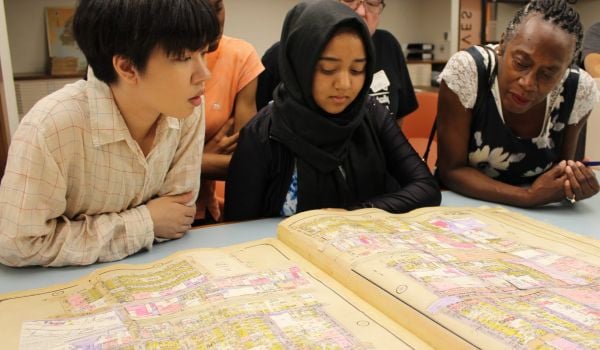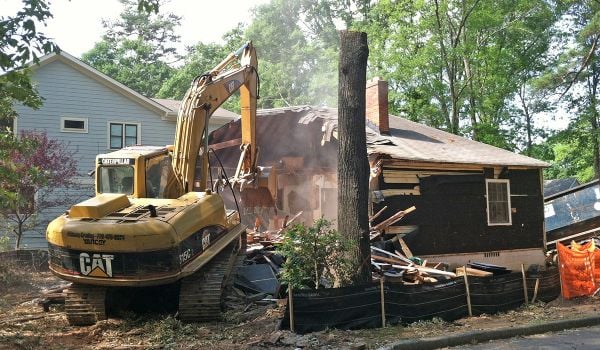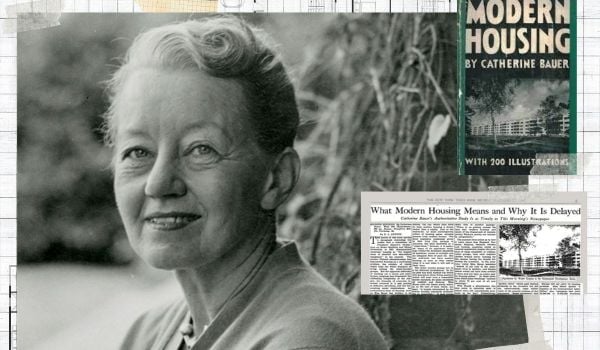When Garrett Wright first started at the Community Development Project of the Urban Justice Center (UJC), he was one of only two lawyers in the housing practice. It was a very busy time, back in 2008.
“It was basically a lot of low-income, working-class tenants of color that were fighting landlords trying to displace them and gentrify neighborhoods,” he says of the clients he represented in housing court. “Private equity companies were buying up rent-regulated housing stock and seeing it as a way of making a huge return on their investment through a business model that’s explicitly predicated on harassing and displacing current rent-regulated tenants and flipping apartments to market rate.”
Sometimes landlords offered buyouts, a tempting offer for cash-strapped tenants. When that didn’t work, landlords might resort to cutting off utilities without warning, or had construction crews do renovations at odd hours of the night.
In some of the most pernicious cases, landlords would stop cashing rent checks for months at a time, then suddenly file an eviction case, citing nonpayment of rent. Often, landlords just refused to maintain buildings, letting conditions get so bad that tenants just couldn’t take it anymore, and they would leave.
UJC’s housing attorneys have represented tenants in all kinds of cases involving these and other harassment tactics. In one particularly egregious example, they’re working right now with one building in the Bronx whose old owner did not give notice to tenants that there was a new owner. Tenants kept sending rent checks to the old owner, who pocketed the money. Meanwhile, the new owner started filing eviction cases against tenants.
There is one big difference today from 2008: The city is providing more support for UJC and other groups that provide civil legal services to tenants. Wright is now one of two supervising attorneys on the UJC’s housing practice team of 11 staff, seven of whom he says were hired this year, thanks to a huge ramp-up in city funding.
This year marks the first time NYC has allocated more than $100 million to tenant legal services. Mayoral funding for tenant legal services in FY2017 is 10 times what it was in FY2014. City council members have added more support from their discretionary funds.
As a result, according to the first annual impact report from NYC’s brand-new Office of Civil Justice (OCJ), 27 percent of tenants facing an eviction case in court were represented by a lawyer in the past year, compared to only 1 percent in 2013. And the lawyers’ presence is having an impact: Residential evictions by city marshals declined 24 percent in 2015 compared to 2013, even though the number of eviction cases filed remained relatively stable.
“For years, landlords have been operating under the assumption that they won’t have to face a lawyer on the other side,” says New York City Council Member Mark Levine, who has been pushing for more tenant legal services funding since before he took office in 2014. “In addition to OCJ’s numbers, we’ve heard anecdotally that landlords, when they see that tenants now have representation on a court case, just drop the case.”
In his previous life, Levine helped found Neighborhood Trust Federal Credit Union, serving the largely Latino communities in uptown Manhattan. “We had many members of the credit union dragged into housing court, who would often come to us for loans to pay off back rent. For many reasons, we were not able to make all those loans,” he remembers.
For Levine, UJC and others, the OCJ report provides yet more momentum toward passing a pending council bill that would establish the right to counsel for all tenants in NYC housing court and set up a system similar to public defenders for criminal cases. (Levine and fellow council member Vanessa Gibson from the Bronx co-introduced the bill back in 2014, and it still remains under discussion.) The city would establish a pool of legal aid attorneys, including some from UJC. Similar to public defenders, and similar to how it currently works in housing court under the recently increased city funding, judges and clerks or the city’s welfare administration would refer clients in need of assistance to one of the attorney groups, which would get paid a flat rate per case. The going rate right now is around $3,000 per case, the same whether it’s a super easy three- or four-hour case or a three- or four-month case.
No matter how simple or complex a case may be, here’s a factor to keep in mind: While the city might pay $3,000 for representation that keeps a family in their existing apartment, if instead they’re evicted and end up cycling in and out of homeless shelters, that same family might cost the city more than $43,000 per year, according to a study by the Right to Counsel Coalition. UJC is part of the Right Counsel Coalition, which has been pushing for the bill’s passage.
Overall, according to the study, a right to counsel in housing court would save the city so much money, in homeless shelter costs as well as healthcare and other costs, the program would in effect pay for itself as well as save another $320 million for the city budget.
In addition to cost savings, in addition to preventing homelessness, in addition to being something along the lines of “the right thing to do,” expanding tenant legal services is also an essential complement to the city’s Mandatory Inclusionary Housing (MIH) policy.
In order to create new rent-regulated units under MIH, the city has to rezone neighborhoods for greater density, or approve applications from developers to rezone specific lots for greater density. Even the slightest hint of which neighborhood is next for rezoning unleashes the same real estate speculators that UJC has been fighting all this time. While they will be required to build some permanently rent-regulated units under MIH, there’s still plenty of market-rate units to build and therefore profits to go after.
For example, the city announced East New York would be the first neighborhood to go through the MIH rezoning process, making it known even before MIH was passed into law. That announcement set off the speculators, and tenant harassment and displacement in East New York began long before the contentious rezoning took place last summer.
“The city learned, after seeing what happened in East New York,” Levine says. “Real estate markets move on rumors, as soon as there are whispers of an upzoning, the speculation begins.”
The city doesn’t want that tenant harassment and displacement cycle to repeat itself after East New York.
The next area the city will rezone under MIH: the Jerome Avenue Corridor, in the Bronx. Most of the corridor lies within the district of Council Member Vanessa Gibson, co-sponsor of the right to counsel bill.

Oscar is Next City's senior economic justice correspondent. He previously served as Next City’s editor from 2018-2019, and was a Next City Equitable Cities Fellow from 2015-2016. Since 2011, Oscar has covered community development finance, community banking, impact investing, economic development, housing and more for media outlets such as Shelterforce, B Magazine, Impact Alpha and Fast Company.
Follow Oscar .(JavaScript must be enabled to view this email address)
















